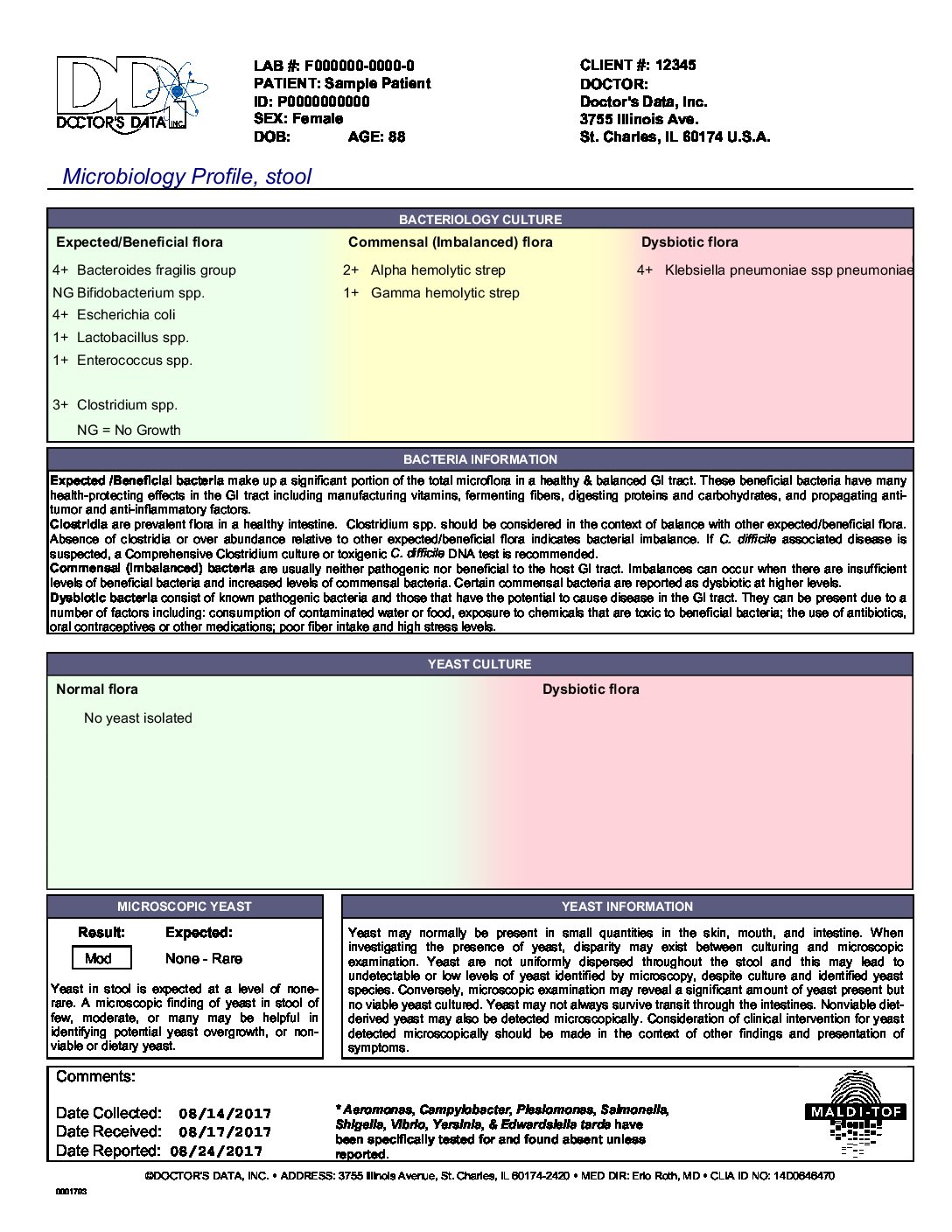Description
Test Specimen: Stool sample
Test Analytes: Bacteriology Culture, Additional Pathogens Culture, Yeast Culture
The Microbiology profile includes comprehensive bacteriology and yeast cultures to identify the presence of beneficial flora, imbalanced flora including Clostridium species, and dysbiotic flora, as well as detection of infectious pathogens. Antimicrobial susceptibility testing to prescriptive and natural agents is also performed for appropriate bacterial and fungal species at no additional charge.
This test is useful for
- Mood Disorders
- Gastrointestinal Symptoms
- Autoimmune Disease
- Joint Pain
- IBD/IBS
- Inflammation
- Food Sensitivities
- Nutritional Deficiencies
- Skin Conditions (Atopic Dermatitis)
Detailed Information
The Microbiology profile includes comprehensive bacteriology and yeast cultures to identify the presence of beneficial flora, imbalanced flora including Clostridium species, and dysbiotic flora, as well as detection of infectious pathogens.
In a healthy balanced state of intestinal flora, the beneficial bacteria make up a significant proportion of the total microflora. However, in many individuals we see an imbalance of beneficial bacteria and an overgrowth of non-beneficial or even pathogenic microorganisms—dysbiosis. This can be due to a variety of factors including:
- Daily exposure to chemicals in our drinking water that are toxic to friendly bacteria
- The use of antibiotics
- Chronic consumption of highly processed foods (low in fiber, high in sugar)
- High stress levels
Patients may present with chronic symptoms such as irritable bowel syndrome, autoimmune diseases such as rheumatoid arthritis, fatigue, chronic headaches and allergies to a variety of foods.
Antimicrobial susceptibility testing to prescriptive and natural agents is also performed for appropriate bacterial species at no additional charge. This provides the clinician with important and specific clinical information to help plan an appropriate treatment protocol.
Yeast
Infection with yeast species can cause a variety of symptoms, both intra- and extra-gastrointestinal, and in many cases, may escape suspicion as a pathogenic agent. Controversy remains as to the relationship between Candida infection and episodes of recurrent diarrhea. However, episodes of yeast infection after short-term and long-term antibiotic use have been identified in patients with both gastrointestinal and vaginal symptoms.
There is some evidence linking yeast infections with more chronic extra-gastrointestinal conditions. Studies suggest that the production of antibodies against Candida albicans may contribute to atopic dermatitis in young adults. Other studies have identified the potential role of candidiasis in chronic fatigue syndrome.
Identification of abnormal levels of specific yeast species in the stool is an important diagnostic step in therapeutic planning for the patient with chronic gastrointestinal and extra-gastrointestinal symptoms.
Antimicrobial susceptibility testing to prescriptive and natural agents is also performed for appropriate fungal species at no additional charge.




